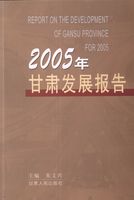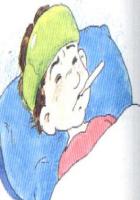Then, for the twentieth time, she would ask whether Orso's wound was very painful. She constantly broke off her own work to exclaim to the colonel:
"Two such cunning men, such dangerous fellows! And he alone, wounded, with only one arm! He killed the two of them! What courage, colonel!
Isn't he a hero? Ah, Miss Nevil! How good it is to live in a peaceful country like yours! I'm sure you did not really know my brother till now! I said it--'The falcon will spread his wings!' You were deceived by his gentle look! That's because with you, Miss Nevil--Ah! if he could see you working for him now! My poor Orso!"
Miss Lydia was doing hardly any work, and could not find a single word to say. Her father kept asking why nobody went to lay a complaint before a magistrate. He talked about a coroner's inquest, and all sorts of other proceedings quite unknown to Corsican economy. And then he begged to be told whether the country house owned by that worthy Signor Brandolaccio, who had brought succour to the wounded man, was very far away from Pietranera, and whether he could not go there himself, to see his friend.
And Colomba replied, with her usual composure, that Orso was in the /maquis/; that he was being taken care of by a bandit; that it would be a great risk for him to show himself until he was sure of the line the prefect and the judges were likely to take; and, finally, that she would manage to have him secretly attended by a skilful surgeon.
"Above all things, colonel," she added, "remember that you heard the four shots, and that you told me Orso fired last."
The colonel could make neither head nor tail of the business, and his daughter did nothing but heave sighs and dry her eyes.
The day was far advanced, when a gloomy procession wended its way into the village. The bodies of his two sons were brought home to Lawyer Barricini, each corpse thrown across a mule, which was led by a peasant. A crowd of dependents and idlers followed the dreary /cortege/. With it appeared the gendarmes, who always came in too late, and the deputy-mayor, throwing up his hands, and incessantly repeating, "What will Signor Prefetto say!" Some of the women, among them Orlanduccio's foster-mother, were tearing their hair and shrieking wildly. But their clamorous grief was less impressive than the dumb despair of one man, on whom all eyes were fixed. This was the wretched father, who passed from one corpse to the other, lifting up the earth-soiled heads, kissing the blackened lips, supporting the limbs that were stiff already, as if he would save them from the jolting of the road. Now and then he opened his mouth as though about to speak, but not a cry came, not a word. His eyes never left the dead bodies, and as he walked, he knocked himself against the stones, against the trees, against every obstacle that chanced to lie in his path.
The women's lamentations grew louder, and the men's curses deeper, when Orso's house appeared in sight. When some shepherds of the della Rebbia party ventured on a triumphant shout, their enemy's indignation became ungovernable. "Vengeance! Vengeance!" exclaimed several voices.
Stones were thrown, and two shots, fired at the windows of the room in which Colomba and her guests were sitting, pierced the outside shutters, and carried splinters of wood on to the table at which the two ladies were working. Miss Lydia screamed violently, the colonel snatched up a gun, and Colomba, before he could stop her, rushed to the door of the house and threw it violently open. There, standing high on the threshold, with her two hands outstretched to curse her enemies:
"Cowards!" she cried. "You fire on women and on foreigners! Are you Corsicans? Are you men? Wretches, who can only murder a man from behind. Come on! I defy you! I am alone! My brother is far away! Come! kill me, kill my guests! It would be worthy of you! . . . But you dare not, cowards that you are! You know we avenge our wrongs! Away with you! Go, weep like women, and be thankful we do not ask you for more blood!"
There was something terrible and imposing in Colomba's voice and mien.
At the sight of her the crowd recoiled as though it beheld one of those evil fairies of which so many tales are told on long winter evenings, in Corsica. The deputy-mayor, the gendarmes, and a few women seized the opportunity, and threw themselves between the two factions; for the della Rebbia herdsmen were already loading their guns, and for a moment a general fight in the middle of the square had appeared imminent. But the two parties were both leaderless, and Corsicans, whose rage is always subject to discipline, seldom come to blows unless the chief authors of their internecine quarrels are present.
Besides, Colomba, who had learned prudence from victory, restrained her little garrison.
"Let the poor folks weep in peace," she said. "Let the old man carry his own flesh home. What is the good of killing an old fox who has no teeth left to bite with, . . . Giudice Barricini! Remember the 2d of August! Remember the blood-stained pocket-book in which you wrote with your forger's hand! My father had written down your debt! Your sons have paid it. You may go free, old Barricini!"
With folded arms and a scornful smile upon her lips, Colomba watched the bearers carry the corpses of her enemies into their home, and the crowd without it melt gradually away. Then she closed her own door, and, going back into the dining-room, she said to the colonel:
"I beg, sir, you will forgive my fellow-countrymen! I never could have believed that any Corsican would have fired on a house that sheltered strangers, and I am ashamed of my country."
That night, when Miss Lydia had gone up to her room, the colonel followed her, and inquired whether they had not better get out of a village where they ran incessant risk of having a bullet through their heads, the very next morning, and leave this country, seething with treachery and murder, as soon as possible.















